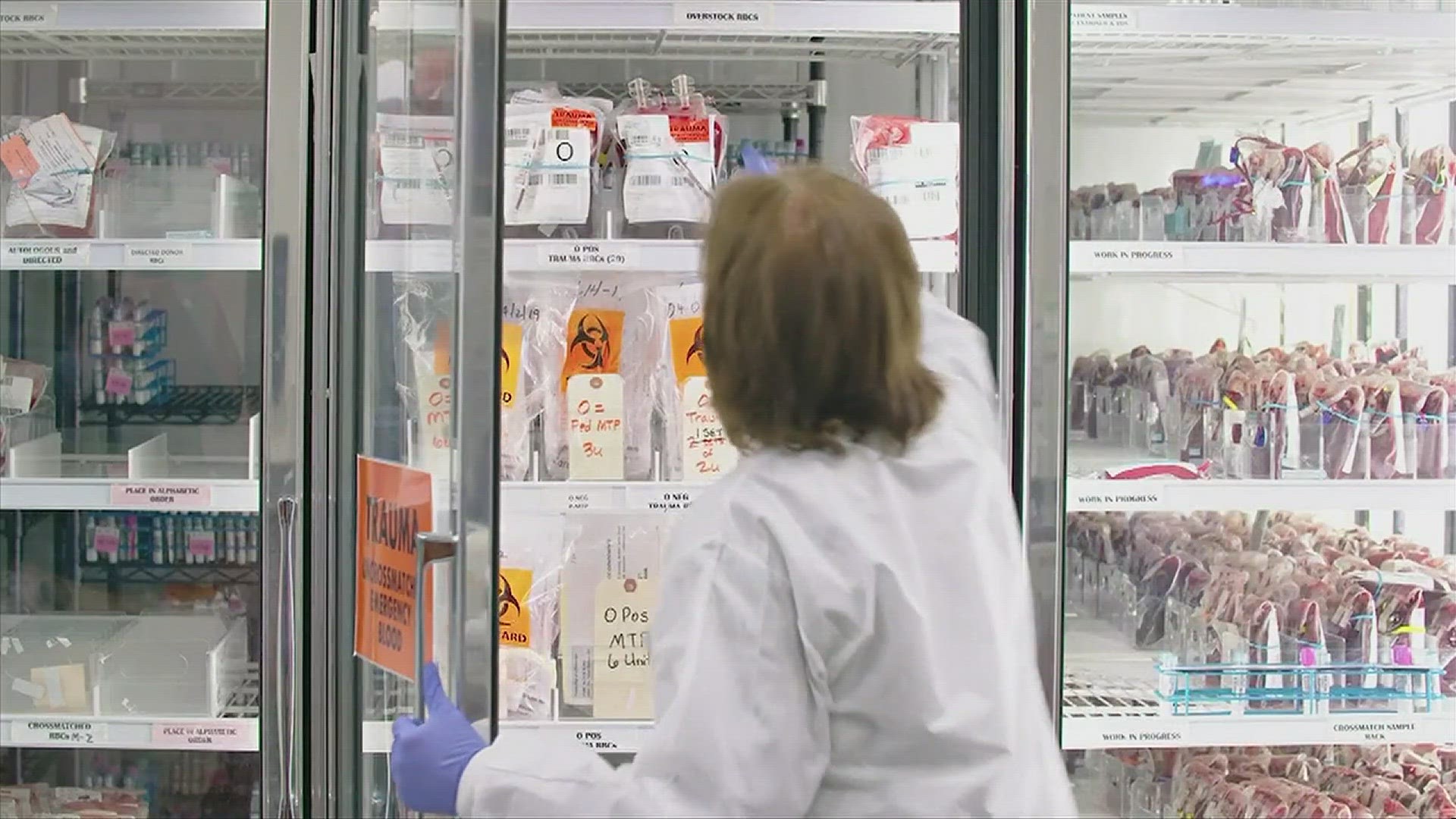HUNTSVILLE, Ala. — New FDA blood donation guidelines are making it easier for day and bisexual men to donate blood with new screening procedures Potential blood donors will now all be asked the same questions during the intake process, regardless of their gender or sexual orientation.
Previously, men who planned to donate were asked if they had sexual contact with another man in the three months prior to the donation date. If they had, the person was not eligible to donate.
The new policy will ask all donors, no matter their gender, a pair of questions connected to sexual history. Potential donors will be asked if they have had new or multiple sex partners in the last three months and when the last time was they participated in anal sex. Dr. Liz Culler, Chief Medical Officer with Blood Assurance, says, "Instead of questioning you based on your identity, your gender, it's based on behavioral risk for HIV.
Red Cross Spokesperson Annette Rowland adds, "It will ask, when is the last time that you participated in anal sex? And if there are any other risk factors involved. And that will be not just for LGBTQ members, but for everyone."
The new questionnaire also asks every potential donor whether they have ever been pregnant or ever had a transfusion.
Jeremiah Dameron, President-elect of Rocket City Pride, says the new guidelines are a step in the right direction. As a queer man, he has long been banned from donating blood. "There's an entire community out there that would love to be able to donate blood, but for, for many, many years that wasn't possible. And it wasn't possible not because of science, you know, but because of a policy that was outdated and was discriminatory."
For years, blood centers, members of the LGBTQ community, and the FDA have been working to change that. That change was slow in coming, and Dameron says there are still more issues to be addressed. "It doesn't quite go far enough. If you are a man and you are with another man and you are on PReP, which is one of the most important healthy things you can do to protect yourself and to protect others and live a healthy life, the new regulations say that you need to be off the medication for three months before you are eligible to give blood. "
And for people who are concerned with the safety of donated blood? Red Cross Spokesperson Annette Rowland says, "We go through many, many tests about two dozen tests at the least, to ensure that that blood that is collected from the donor is safe before it is at a hospital shelf."

